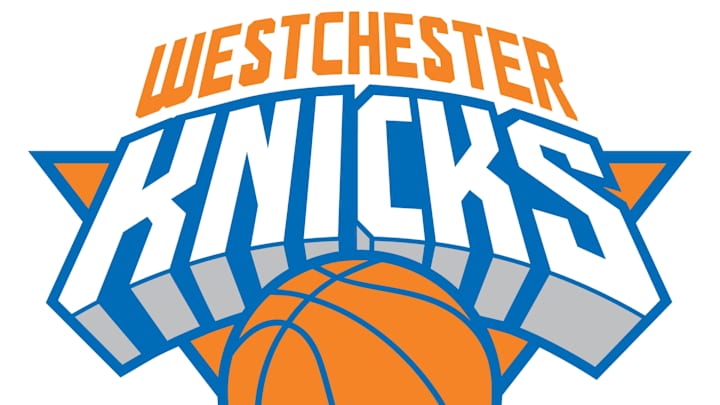Inside Lisa Willis' Process with the Westchester Knicks, Part I

PART I: The Project
GREENBURGH, NY — To the right of the Knicks retired numbers that hang high at the team’s practice facility, Lisa C. Willis, the Westchester Knicks history-making assistant coach looks on at swingman Zak Irvin. The G-League third year is fine-tuning his shot. The day’s practice had just concluded and Irvin remains the only player left in the gym.
Irvin dribbles once in between his legs. He holds the ball. Repeat. After the second dribble, he fires a shot from the left side of the basket, which bounces off the rim. The ball ricochets, bounces once into Willis’ hands and she immediately tosses it back to him. He duplicates the exercise but only with one dribble from hand to hand between his legs. Swish.
“Nice,” Willis says to Irvin.
Irvin can drive, fake out defenders inside the paint, find the open man in the corner and create blue-collar style rebounds. But according to Willis, the only facet of the game where his confidence plummets is his shooting. He had difficulty holding onto the ball and raising his arms to create a shot. His follow-through lacked consistency.
Willis wanted to change that. When she first landed the job in Westchester, she referred to Irvin as her “project.”
Asked about the drill I observed, she broke it down, explaining the rationale for the dribbling between the legs.
“With that he was dribbling the ball, doing the cross over in between the legs or behind the back,” she said. “He was dribbling at a very very very quick pace so that the ball will never come out of his hands that quickly during the game, but it’s teaching him how to take that contact on his hands and get ready to go.”
In college at UCLA and in the WNBA, Willis established herself as an exceptional three-point shooter. As a Bruin, she recorded a total of 256 made three balls and those standards continued into her four year WNBA career where she finished with an aggregated three-point percentage a hair under 40. In 2006, she was recognized for her defensive prowess and was named by Nancy Lieberman as the best defender in the country.
Irvin noted how valuable her focus to defense is, citing that players in the G League “don’t like to play defense.” The Knicks wing appreciates her approach, acknowledging that defense is a linchpin in the game of basketball. A defensive mentality will aid Westchester down the stretch of the season. Currently, the Knicks have the 6th best defensive rating in the G league and are first in opponent point in the paint, ceding 44.5 points.
For Willis, the journey to becoming a hooper began all in the family. Her father coached middle school basketball and instead of a receiving cabbage patch kid under her Christmas tree in third grade, Willis received a basketball. She remembered sneaking into her living room before Christmas morning to see if her wish had come true. Since there’s no real way to wrap a basketball, it was quite obvious. From that day forward, her dad promised he would give her “everything she needed to be successful.”
He instilled a discipline in his daughter. Shot mechanics were integral and came first, and the returns paid off.
“The mindset that I’ve cultivated primarily came from him,” Willis said when I asked her about her father’s influence on her game. “Being nine years old going to basketball practice, everybody gets into the gym and they’re shooting from halfcourt and doing trick layups, and tricks shots, and he ingrained in me, ‘you’ve gotta do your form shooting. You don’t do anything else until you do this. There’s no way you can start shooting threes until you do this.’ It’s from 8 years old all the way up to the pros. I still do it now because essentially it’s a warm-up. I’m stretching my jumper getting ready to go.”
But there was a time when Willis wasn’t sure if basketball was something that worth her future. After her WNBA career, she took over her mother’s nonprofit organization The Promise Group, dedicated to at-risk youth in California. It wasn’t until 2017 when life itself flashed before her eyes.
I asked Willis how her father reacted when he heard that she landed this position, which continues his legacy. She looked at me for a moment and sighed. She explained to me that he passed away three years ago suddenly of a heart attack. “Everybody who finds out [about her job with Westchester] says: your dad would be so excited,” Willis said.
The devastation led her down a path of self-discovery and reflection. She took a step back and recognized how basketball has always been and will be a metaphor for her life. It’s analogous for how she lives her life today. “I’m more of a basketball player today than I was when I was actually playing. Just because of all the things that basketball has taught me. I’m playing basketball on the court and I’m playing basketball in the real world. When it comes to making the right pass: I love helping people, that’s an assist. When it comes to shooting my shot: I’m a risk-taker. I’m going to go for it and I’m going to shoot the long shot too.”
Tomorrow, Part II: "The Unwritten Rule of Respect"
